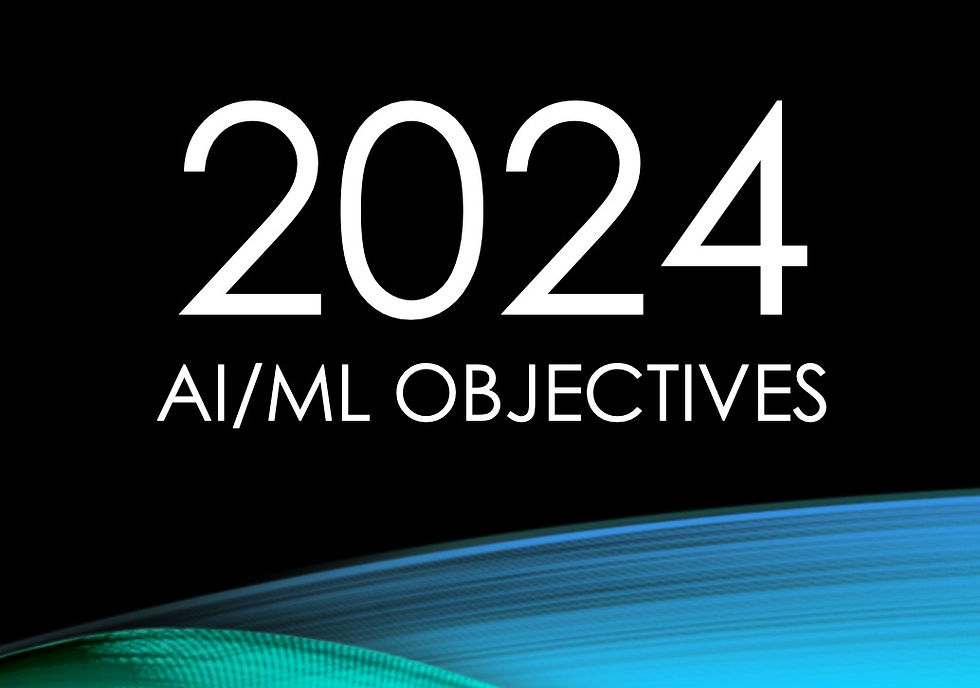Planning AI-driven water projects in 2024? Four industry examples
- Nathan Rudyk
- Jan 29, 2024
- 4 min read
Updated: Apr 25, 2025

As we enter into 2024, increased digitization is poised to take a great leap forward in water infrastructure. Thousands of sensors are pumping out millions of time-series data points, and vast amounts of public data can inform wastewater flows, system degradation and other vital metrics. At the end of the “data pipe”, AI and ML automation is readily available to tackle the challenges wrought by climate change-induced storm events, urban population concentration and ageing infrastructure.
Engineering and data science teams forming project initiatives for the New Year can seek inspiration from infinitii ai’s customer accomplishments in 2023:

Over one billion points of data will be captured and analyzed over the life of this project, and advanced machine-learning and quality assurance software will drive more actionable insights for Peel Region
In the Region of Peel, which provides water and wastewater services to 1.5 million residents and over 175,000 businesses, a multi-year Flow and Rainfall Data Delivery project initiated initiated by our partner SCG Flowmetrix Technical Services Inc. is installing 350 sensors throughout the sewer network and more than 30 rain gauges to monitor and collect data for hydraulic modelling, capacity assessments, inflow and infiltration remediation, flood forecasting, regulatory reporting requirements, and more.
Real-time data will provide critical and actionable information during extreme weather events and will enable proactive sewer network maintenance.
“Over one billion points of data will be captured and analyzed over the life of this project, and advanced machine-learning and quality assurance software will drive more actionable insights for Peel Region,” stated Sam Mills, Vice President at SCG Flowmetrix.
The City of Montreal undertook a pilot project to perform Quality Assurance and Quality Control (QA/QC) on any sensor data outliers that may distort results or trigger false alerts. Machine Learning models provide insight on data identified from sensor anomalies. Problem data is identified for further action in the following ways:
Data anomalies are flagged for further investigation by engineers and data analysts in their manual workflow
Certain anomalies may be deemed acceptable, and automatically eliminated from the data stream
Other anomalies may be automatically substituted with predicted data values to limit impact on real-time predictions.
The Regional Municipality of York (York Region) celebrated 2023 with an American Water Works Association (AWWA) Innovation Award for developing a machine learning project for managing inflow and infiltration. York Region designed a machine learning model as part of its Inflow and Infiltration Reduction Strategy.
The model uses machine learning to process raw data into actionable information to help make proactive and better-informed decisions to manage infrastructure. Real-time and historical data are integrated to create a priority map that informs future operations and maintenance work. It can predict the way the system would respond to hypothetical precipitation events.
78% reduction in analysis time when compared to the two weeks it took to do the analysis manually. This amounts to approximately $40,000 in labor costs per analysis
To date, the model has achieved over 90% confidence in the analysis. York Region has also realized a 78% reduction in analysis time when compared to the two weeks it took to do the analysis manually. This amounts to approximately $40,000 in labor costs per analysis of all nine of the municipalities within the region.
Vancouver-based Kerr Wood Leidal Associates Ltd. is actively using a Python automation tool for running advanced calculations in real-time. Its engineers deploy custom data transformations on behalf of its clients to manage and operationalize production-ready models that generate new data channels such as predictions. They build models from sensor data or other data sources using existing scripts created in Python.
infinitii face pro provides better data-driven insights for making faster, more informed decisions, particularly with real-time and forecasting applications
“What we love about infinitii face pro is that our data engineers and scientists can write Python and R scripts using their preferred development environment and then copy and paste the code into face pro and have it running system wide quickly and efficiently,” said Luis Galindo, Senior Data Scientist at Kerr Wood Leidal Associates Ltd. “This provides better data-driven insights for making faster, more informed decisions, particularly with real-time and forecasting applications.”
The types of advanced calculations now easily performed by KWL’s engineering team include Soil and Water Integrated Model (SWIM) calculations that track and predict climate and land use change impacts at a regional scale, and Evapotranspiration (ET) calculations used to estimate soil-moisture storage based on precipitation deficit and the maximum water-holding capacity of the soil.
All of these 2023 digitization initiatives are in keeping with AWWA’s Water 2050 Think Tank report that recommends AI and ML solutions including predictive analytics. Recommendations include:
Employ digital solutions such as artificial intelligence (AI) and machine learning (ML) to optimize efficiency, operations and water quality
Apply real-time monitoring, predictive analytics and material science to create 'eternal infrastructure' and support resilient resources
Why wait until 2050? Based on our customers’ successes in 2023, the time is now for your team to undertake AI and ML initiatives that can significantly advance your water infrastructure team’s digital transformation journey.







Comments